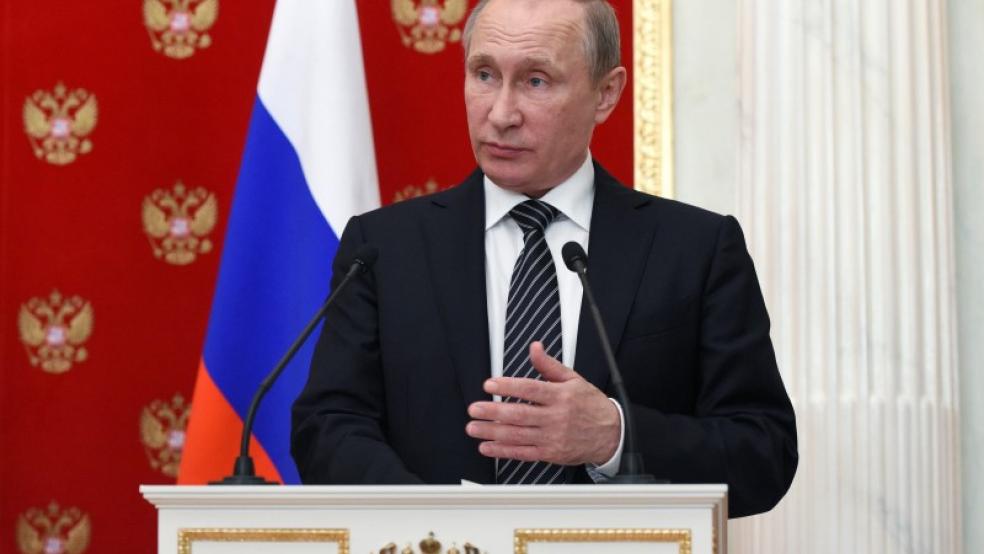Now that Washington’s efforts to resolve the Syria crisis jointly with Moscow are a complete debacle, what else can get worse before President Obama cedes the White House to his successor? The answer could not be grimmer: U.S.–Russian relations across the board could hit the rocks any time.
With the collapse of the peace deal Secretary of State Kerry sealed last month with Sergei Lavrov, his Russian counterpart, Washington’s ties to Moscow are now as toxic as during some of the Cold War’s worst moments. Each side blames the other for Syria’s failure in nearly apoplectic tones.
Related: China Aligns With Russia in Syria, Creating a Headache for the US
Worse, senior leaders in both capitals appear to recognize the wider implications of the failed negotiation in Syria and accept the associated risks. At this point, little seems to lie between this new frost and a complete break in relations.
No matter one’s political stripe, there’s nothing for anybody in another Cold War freeze—and much to lose by way of cooperation on matters of mutual interest.
The accusations of betrayal hurled in both directions since last week have been stunningly vituperative. In an editorial last Thursday that plainly reflected official opinion, The New York Times accused President Putin of turning Russia into “an outlaw state.”
It’s time to tone down the chest-out tough talk on both sides. If nothing else, this kind of thing always comes over as expressing weakness, not strength.
Any way you cut it, the Obama administration will leave its successor a diplomatic and political minefield in its relations with Russia. Here are three dangers the next president must consider as he or she decides on what posture to take toward Moscow:
Related: Is Russia Beating the U.S. in the Drone Race?
• The crisis in Ukraine will turn from another cold regional conflict into a very hot one if U.S.–Russian ties fracture. The Kiev government has long pleaded with the U.S. to increase supplies of weaponry, and many top leaders in the Pentagon and at NATO headquarters in Brussels have signaled that the administration need only say the word.
A multinational committee’s interim conclusion last week that Russia was indirectly responsible for the downing of Malaysian Flight 17 over Ukraine two years ago did no good at all, of course. But a policy of restraint, even in the face of all such events, remains the best course.
The framework for a negotiated settlement in Ukraine still remains in place. It is frayed and fragile; violations aren’t uncommon, but they’re nothing like the numbers we’ve seen in Syria.
The U.S. was not party to that ceasefire pact negotiated by Germany, France, Russia, and Ukraine early last year known as Minsk II. This president and the next should let this process play out until the European Union, which has signaled a hundred times that it favors negotiation over confrontation, declares it dead.
Related: The Failed Ceasefire in Syria Now Leave Russia in Charge
• If failure in Syria tips us decisively into Cold War II, Obama’s successor will see no choice but to press for the extension of pan–Western sanctions against Russia. These were imposed in response to Russia’s annexation of Crimea in spring 2014, though it would still do everyone a power of good if the U.S. were to acknowledge that its prior meddling in Ukrainian politics prompted Moscow’s move.
Given the Europeans signal their dislike of these sanctions ever more plainly when they come up for periodic renewal, trans–Atlantic tensions will also suffer. No administration needs this.
Senior French and German officials have already pronounced the Trans–Atlantic Trade and Investment Partnership Obama’s creampuff trade deal dead on arrival. It’s hard not to conclude it was in part a casualty of Washington’s indifference to Europe’s dense weave of economic ties with Russia.
Related: The Failed Syria Ceasefire Pushes US-Russia Relations to the Brink
• Full-dress enmity between Moscow and Washington is going to make a non–Western alliance between Russia and China a lot more interesting. This is true for both parties given both already face American animosity for one or another reason.
Remember the huge gas deals Moscow and Beijing signed three years ago? While they haven’t yet fully flowered, it seems certain they will. Vast amounts of Chinese investment and credit, not least in the energy sector, have been key to Russia as it evades the sanctions.
Russia was to be a big new market for U.S. car producers. Chinese manufacturers are now increasing market share fast—not only at U.S. expense, but also to the cost and annoyance of the Germans as they fume silently in opposition to the sanctions regime.
On and on it goes. China is now a leading customer of Russia's energy output; China (and Brazil) have to a large extent replaced sanctioned E.U. and U.S. food exports to Russia with the exceptions of meat and cheese, which Russia is almost able to provide without help from abroad.
Related: Kremlin Pushes Back as DNC Blames Latest Hack on Russia
Last month Russian vessels joined the Chinese navy for exercises in the South China Sea. Can anything drive the point home more plainly? Sino–Russian ties are in the economic sphere for the time being, but we can’t any longer conclude that’ll be all there is to them.
In my read, parity with the West is a 21st century ambition across the non–Western world, and Russia and China are perfectly fine casting themselves as the paradigms.
Three ways another round of eye-to-eye hostility with Moscow will cost the U.S. if post–Syria, things are allowed to get out of hand. Three things no one in Washington seems to be thinking much about.






